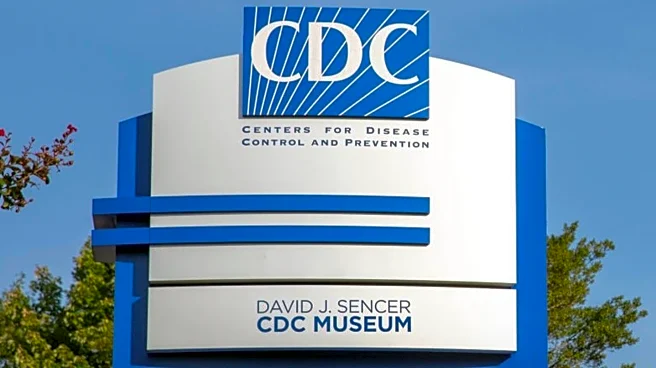What's Happening?
The FDA's drug approval process has been a critical component in ensuring the safety and efficacy of medications in the United States. This process was established following the tragic deaths of over 100
Americans due to sulfanilamide elixir poisoning in the 1930s, leading to the enactment of the Federal Food, Drug and Cosmetic Act of 1938. The legislation mandates rigorous testing to document drug safety before marketing. A recent discussion highlights the high costs associated with drug research and trials, particularly for rare diseases, even before FDA approval. A patient with eosinophilic granulomatosis with polyangiitis shares their experience with the costly biologic medication Nucala, which costs $41,000 per month. The debate continues on balancing faster drug access for rare diseases against ensuring thorough safety and efficacy data through multiple clinical trials.
Why It's Important?
The FDA's stringent approval process is crucial for patient safety, but it also contributes to the high costs of drug development, particularly for rare diseases. These costs can be prohibitive for patients and healthcare systems, raising questions about accessibility and affordability. The discussion underscores the need for a balance between rapid access to potentially life-saving treatments and the assurance of their safety and efficacy. Patients with rare diseases often face limited treatment options, making the development of new drugs vital. However, the financial burden associated with these treatments can be significant, impacting both individual patients and broader healthcare policy.








